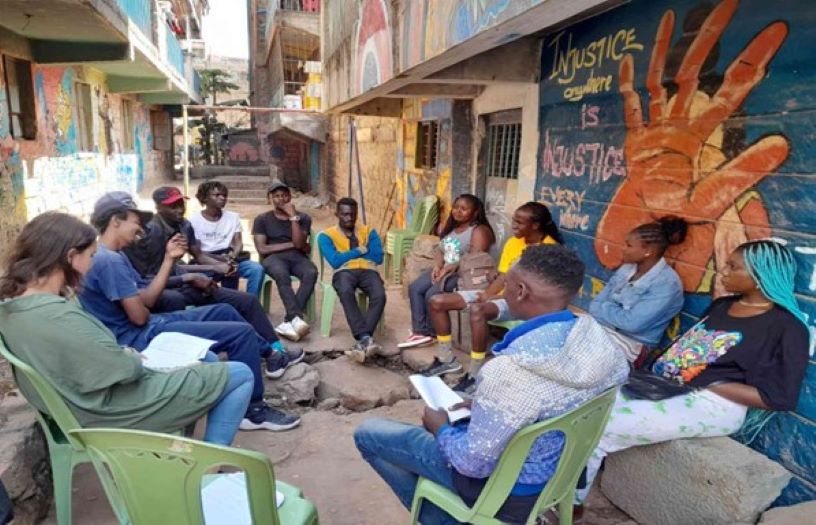East Africa peace work threatened by unprecedented challenges
The conflict in Ukraine, coronavirus pandemic and climate change are all putting intolerable pressure on peace work in East Africa, peacebuilders say.

Quakers in Britain works with local partners in Rwanda, Kenya, and Burundi to build a positive, non-violent grassroots peace movement.
The Turning the Tide (TTT) East Africa programme helps local activists stand up for social justice and peace.
[QUOTE-START]
It has been harder to offer the long and in-depth trainings needed to develop lasting skills in nonviolence
- Benard Agona
[QUOTE-END]
But the surge in inflation and shortages of fuel and basic commodities means people cannot make ends meet, increasing conflict and undermining peace work.
In Rubavu, Rwanda, the situation is compounded by conflict in nearby Kivu, and by climate-related floods and landslides which have destroyed homes and displaced people.
Daniel Nteziyaremye, national field co-ordinator for TTT in Rwanda, said local ownership was the best way of building nonviolent campaigns.
But with communities like Rubavu struggling with despair and trauma, TTT community activists found the needs were simply too great for them to manage.
The pandemic caused projects across East Africa to grind to a halt, as people could not meet physically, and could not access the technology to meet remotely.
Benard Agona, executive director of AfriNov, which carries out TTT nonviolence training in Kenya, reported that rising prices meant people had to work more and had less time to volunteer.
Working with hungry people is challenging, he said, and often they prefer to attend political rallies where handouts are on offer.
Aloys Ningabira, project co-ordinator, TTT Burundi, said: “Here we have to deal with social strata that have been made more fragile by the various crises that our country has suffered.
“The TTT project intervenes to put each of these layers back in its place despite multiple difficulties, including resistance to positive change."
Nteziyaremye said: “I would like to call on the international community to support the activities of peace in Rwanda, especially in Rubavu District.
“We need your support in increasing the capabilities of local peace actors, especially in trauma healing and listening skills, resilience, and leading community dialogue on resilience."
Ningabira added: “Efforts made through the TTT project give hope for a lasting peace in Burundi."